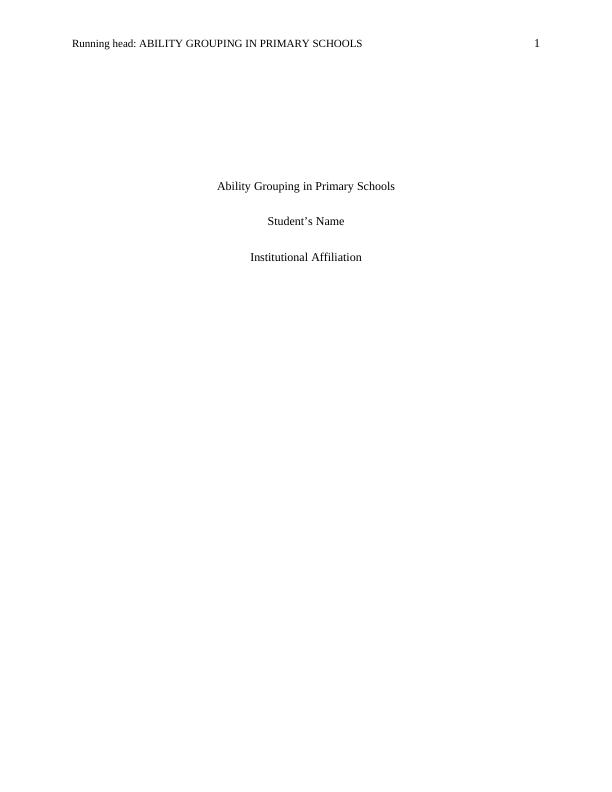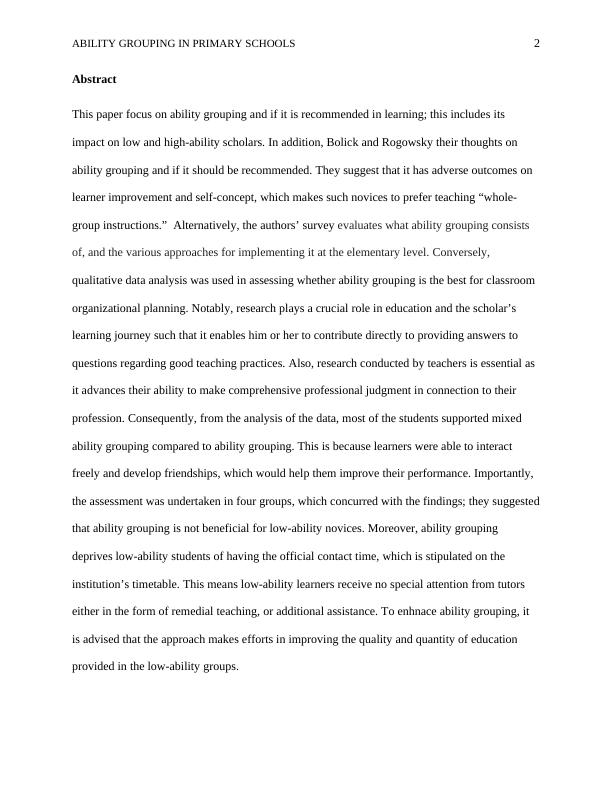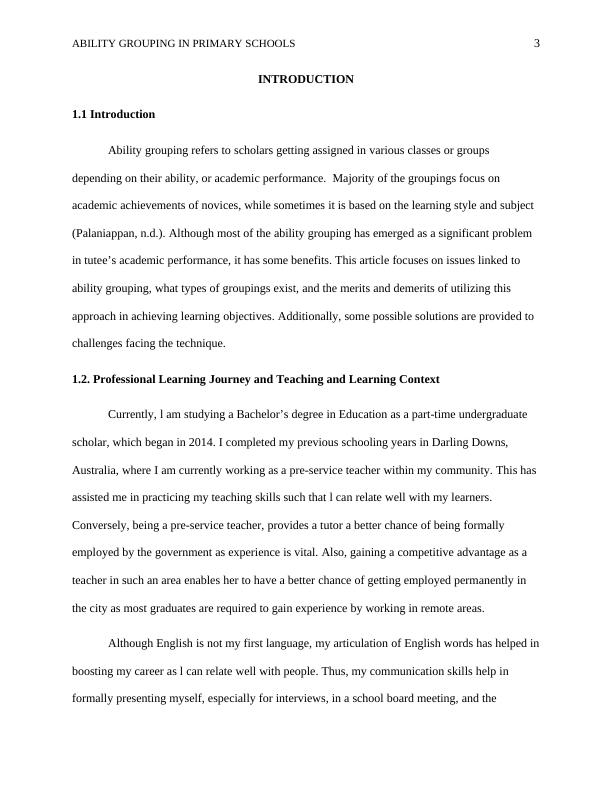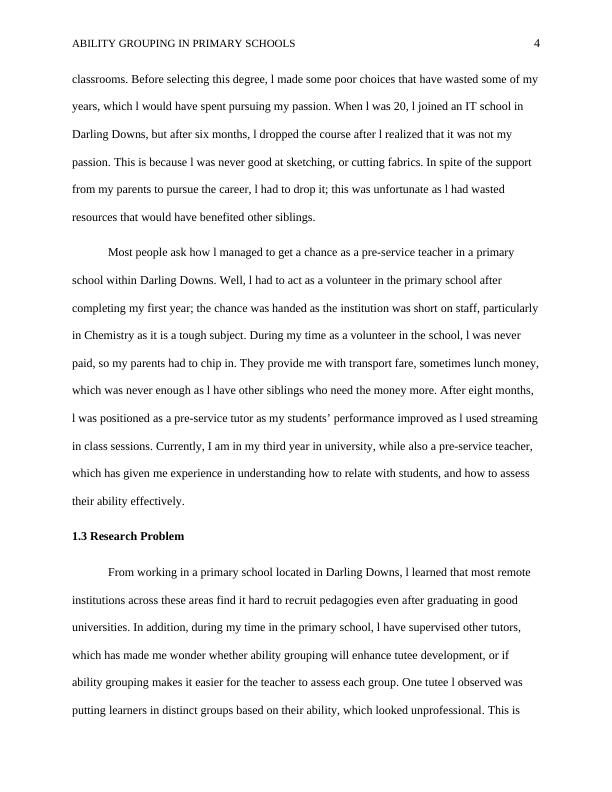Ability Grouping in Primary Schools
Marking criteria for Assignment One in EST302 - Professional Journey Plan Part Two, focusing on the description of education/teaching and learning context, reflection on the significance of research to professional learning journey, research questions, and literature review.
16 Pages3865 Words40 Views
Added on 2023-03-23
About This Document
This paper focuses on ability grouping and if it is recommended in learning; this includes its impact on low and high-ability scholars. In addition, Bolick and Rogowsky their thoughts on ability grouping and if it should be recommended. They suggest that it has adverse outcomes on learner improvement and self-concept, which makes such novices to prefer teaching “whole-group instructions.” Alternatively, the authors’ survey evaluates what ability grouping consists of, and the various approaches for implementing it at the elementary level. Conversely, qualitative data analysis was used in assessing whether ability grouping is the best for classroom organizational planning. Notably, research plays a crucial role in education and the scholar’s learning journey such that it enables him or her to contribute directly to providing answers to questions regarding good teaching practices. Also, research conducted by teachers is essential as it advances their ability to make comprehensive professional judgment in connection to their profession. Consequently, from the analysis of the data, most of the students supported mixed ability grouping compared to ability grouping. This is because learners were able to interact freely and develop friendships, which would help them improve their performance. Importantly, the assessment was undertaken in four groups, which concurred with the findings; they suggested that ability grouping is not beneficial for low-ability novices. Moreover, ability grouping deprives low-ability students of having the official contact time, which is stipulated on the institution’s timetable. This means low-ability learners receive no special attention from tutors either in the form of remedial teaching, or additional assistance. To enhance ability grouping, it is advised that the approach makes efforts in improving the quality and quantity of education provided in the low-ability groups.
Ability Grouping in Primary Schools
Marking criteria for Assignment One in EST302 - Professional Journey Plan Part Two, focusing on the description of education/teaching and learning context, reflection on the significance of research to professional learning journey, research questions, and literature review.
Added on 2023-03-23
ShareRelated Documents
End of preview
Want to access all the pages? Upload your documents or become a member.
Roles and Responsibilities of the Teacher
|5
|786
|84
My Portfolio Case Study 2022
|6
|1230
|23
Cambridge International Certificate in Teaching and Learning
|10
|3013
|180
Pedagogical Leadership Reading Analysis
|5
|994
|268
Researching Teaching and Learning
|9
|2452
|64
Culturally Responsive Teaching : Assignment
|7
|1030
|406




